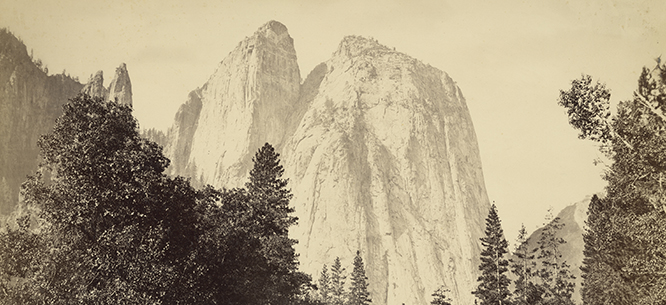Ecology in an Era of Fragmentation
Ecology in an Era of Fragmentation
As a species, we produce gardeners, devoted caretakers, and also arsonists.

An era has recently closed. It ran from roughly the end of the Cold War until now, although it has been in crisis for nearly a decade. Its basic logic took shape in the 1990s, but it reached its apex in the first decade of the twenty-first century. It was an era of uniquely dominant American power—military, economic, cultural. The United States decided when and where to go to war—including, portentously, in Iraq in 2003. Wherever you went in those years, from Egypt to India to Indonesia, young people would tell you that they expected the future to be a certain kind of American world. Even in China, which very much had a sense of its own place on the global stage, I remember walking into a Shanghai bookshop in 2001 and encountering an exhibition of an audio program for learning English, which was repeating this useful phrase: “We are looking forward to the closer trading relationship.”
The working assumption of that era was that history had a direction, glimpsed in that audio book: the direction was toward liberal democracy, and the road to it was the global extension of market life. Whether or not we knew it, we were all, in fact, looking forward to the closer trading relationship.
Global media reminded people of what they wanted: personal liberty and nice things. After all, the story went, the Soviet Union had fallen because its people wanted blue jeans and rock and roll. Markets would bring these things, and participation in markets would shape people into liberal and democratic citizens. Why? Because as entrepreneurs, small property-holders, people with jobs and a stake in the system, they would demand security, stability, and personal rights from their governments. Regimes around the world would become more responsive, and more responsible. Ultimately, we would all be democratic.
But—and here was the paradox—we might hardly notice the difference democracy made. Democracy is a system of collective choice, a way of choosing a future. But in the climate of thought that I am recalling, there was only one desirable future. All democracies would get to more or less the same place, with different details, which were not much more important than national costumes, local cuisines, or preferred holidays. Democracy would put a final stamp of approval on the world that markets and human nature were already building.
This description suggests a complacency and sense of inevitability. But there was a deliberate political effort to build the world order in which this theory of democratic development would thrive. This was global economic integration on market terms: first lowering barriers at the border, especially tariffs and capital controls, then pressing toward standardization of domestic regulation and the building of a transnational dispute resolution system that would give investors their own private legal sphere where mere national sovereignty wouldn’t intrude. This is what we now call globalization. More...
Subscribe now to read the full article
Online OnlyFor just $19.95 a year, get access to new issues and decades' worth of archives on our site.
|
Print + OnlineFor $35 a year, get new issues delivered to your door and access to our full online archives.
|






